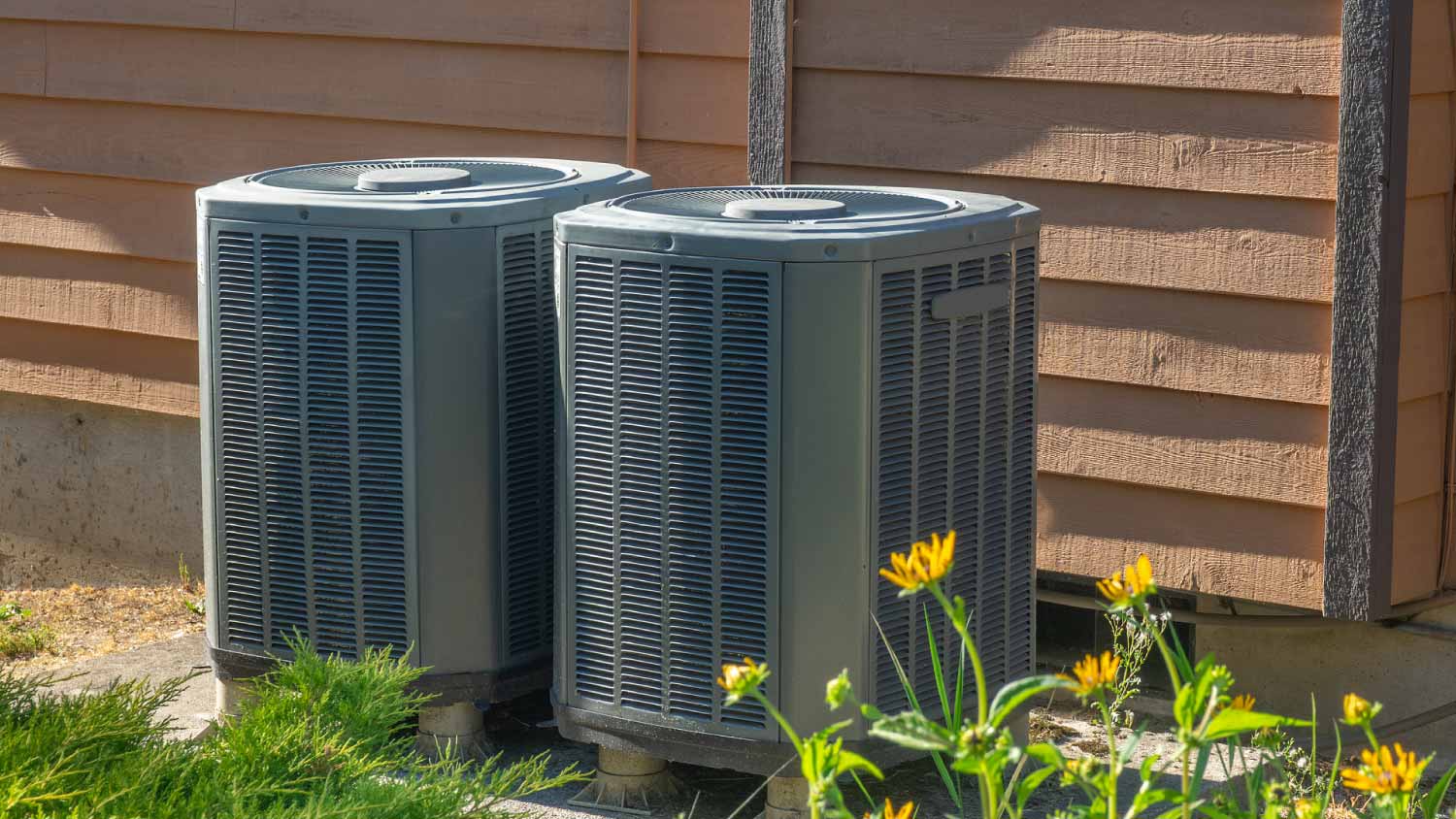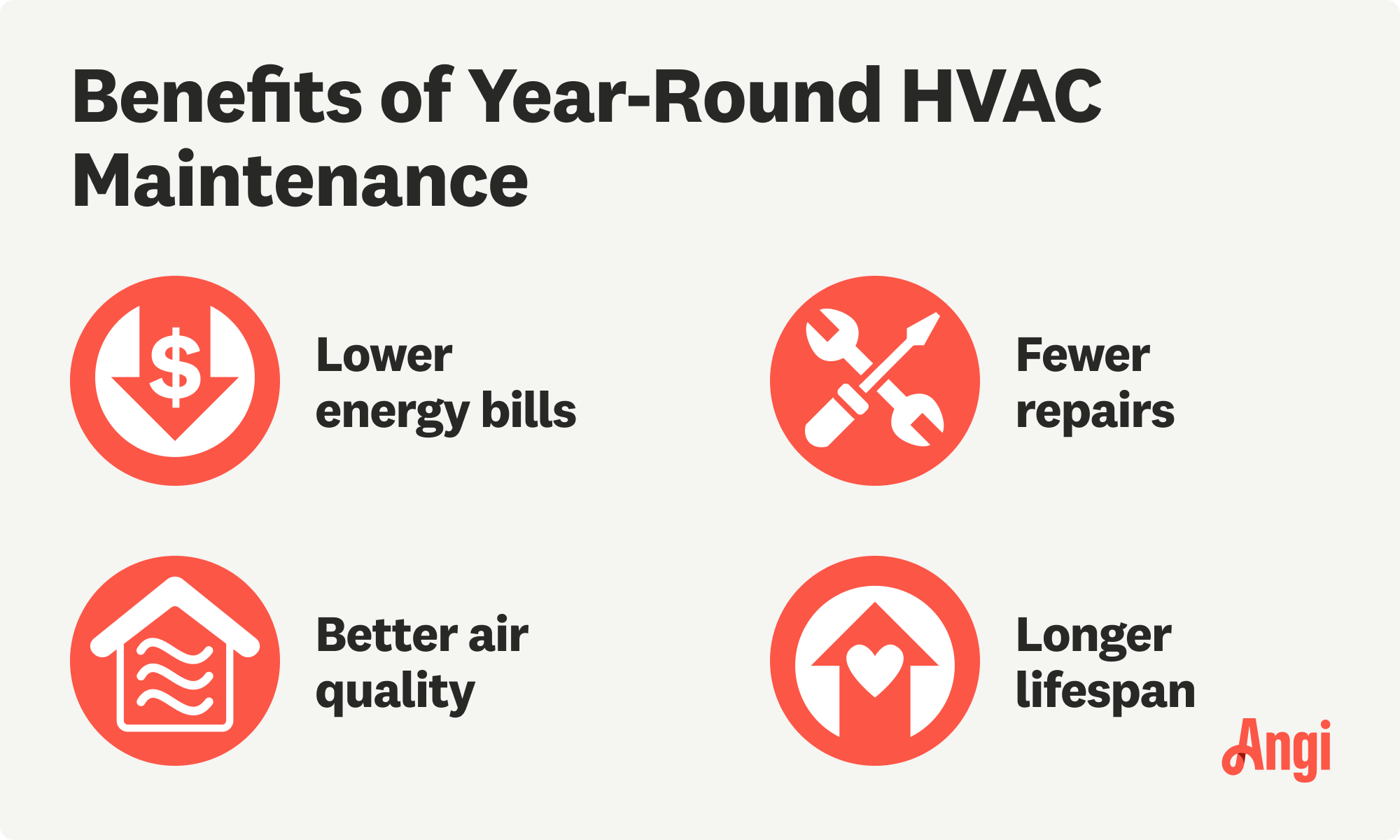
Springing for HVAC maintenance costs may seem like an extra—and easy-to-ignore—item on your checklist, but it will save you money in the long run.
When it comes to AC filters, dry is best


Leaky drain pans are a common reason for soggy AC filters.
A blocked condensate line or frozen evaporator coil could also be to blame.
Wet filters can lead to HVAC damage and mold, so it’s important to replace them.
If your air conditioner filter is wet, it’s a sign that something isn’t quite right. Fortunately, though, it doesn’t always mean that there’s something seriously wrong with your HVAC system. In fact, the fixes are often fairly easy (and DIY-friendly). But first, let’s answer the question at hand: Why is your air conditioner filter wet? Here are three potential causes, as well as next steps for addressing each one.
It’s natural for your air conditioner to produce condensation, but that moisture shouldn’t reach your filter. Soggy filters can reduce airflow and make your HVAC system work harder, meaning that your AC will use more energy (and your utility bills will be higher).
On top of that, a wet filter can put added strain on other parts of your HVAC system and potentially cause it to break down. Plus, damp filters can lead to mold in your air conditioner. When mold circulates in your air ducts, it can result in health problems like headaches, fatigue, nausea, and allergy-like symptoms.
As your air conditioner runs, it creates condensation as part of the cooling process. This condensation collects in the drain pan (also known as a drip pan), which sits beneath the evaporator coils. Eventually, the condensation leaves your HVAC system through a condensate drain line. Over time, the pan can develop cracks, holes, or rust. As a result, water can leak onto your AC filter.
If you’re comfortable poking around your air conditioner, you can open it up and look for signs of wear and tear on your drain pan. (It should be near the bottom of your indoor unit, connected to the drain line.) If you see signs of damage, you may need to replace the pan. In that case, you should call a local AC repair company.

Another common culprit of a wet AC filter is a blocked condensate line. Ideally, this part of your HVAC system is supposed to remove condensation after it collects in the drain pan. But if debris—like dirt, pet hair, or mildew—gets into the line, it can back up into the drain pan. At that point, the water has nowhere left to go and can spill onto your filter or other parts of your air conditioner.
Fortunately, cleaning a clogged condensate line is a simple DIY project. After turning off the AC, find the condensate line and access point, flush the system with distilled vinegar, and follow the vinegar up with a water rinse.
Evaporator coils contain refrigerant and work together with condenser coils to produce the cool air that comes out of your AC. However, there are situations where the refrigerant can get too cold (often due to insufficient airflow from a dirty air filter) and freeze the evaporator coils. When they thaw, the condensation can drip onto your filter and make it soggy.
Sometimes, a frozen AC unit will fix itself, but you shouldn’t count on it. Instead, it’s better to unfreeze the air conditioner yourself or hire an HVAC expert to do it. If you decide to DIY it, you’ll start by turning off the AC and starting the fan to begin the thawing process. Then, you should replace the filter and clean the coils (if they’re dirty).

While you might not be able to prevent a drain pan from rusting over time, there are other steps you can take to reduce your future risk of wet filters. These include:
Changing your AC filter every one to two months
Booking an annual air conditioning service appointment
Contacting a pro as soon as possible if you notice any strange sounds, smells, or other problems with your AC
From average costs to expert advice, get all the answers you need to get your job done.

Springing for HVAC maintenance costs may seem like an extra—and easy-to-ignore—item on your checklist, but it will save you money in the long run.

Switching from oil to gas heating could impact your savings. This guide will help you understand the cost to convert from an oil furnace to a gas furnace.

Gas furnace replacement costs depend on the type of furnace you want and installation fees. Our guide explains all the factors involved in a new furnace cost.

Your return air vent is responsible for removing warmer air, so testing it ensures you keep your environment comfortable and there are no HVAC problems.

An icy coil can create costly AC repairs. Learn what to do if the evaporator coil freezes to ensure your HVAC system operates efficiently.

Learn how to reset your boiler safely with our comprehensive guide. Don't let heating issues disrupt your comfort this winter.